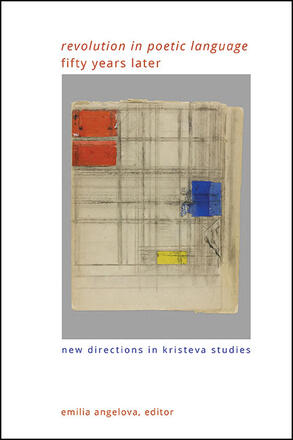
"Revolution in Poetic Language" Fifty Years Later
New Directions in Kristeva Studies
Revisits Julia Kristeva's magnum opus on the fiftieth anniversary of its original publication to open up new paths of interdisciplinary inquiry.
Description
In her 1974 Revolution in Poetic Language, Julia Kristeva resisted the abstract use of language, with its aim of totalization and finality, in all its colonizing and alienating forms. A major thinker and critic, Kristeva reappropriated Hegel's concepts of desire and negativity, in conjunction with the thought of Heidegger, Arendt, Freud, and Lacan, to revolt against modernity's culture of nihilism and the West's inability to deal with loss. This collection celebrates the fiftieth anniversary of Revolution in Poetic Language by revisiting Kristeva's oeuvre and establishing exciting new directions in Kristeva studies. Engaging with queer and transgender studies, disability studies, decolonial studies, and more, renowned and rising scholars plot continuities in—and push the boundaries of—Kristeva's thinking about loss, revolution, and revolt. The volume also includes two essays by Kristeva, translated into English for the first time here—"The Impossibility of Loss" (1988) and "Of What Use Are Poets in Times of Distress?" (2016).
Emilia Angelova is Associate Professor of Philosophy at Concordia University. She is the editor of The Necessity of Freedom in Hegel: Logic, Phenomenology and Aesthetics.
Reviews
"With its intellectual breadth, originality, and erudition, this anthology offers readers far more than a rigorous reevaluation of Revolution in Poetic Language within the corpus of Kristeva's intellectual history. It also critically and imaginatively reconceptualizes Kristeva's text to address the most pressing political, philosophical, and psychoanalytic debates of our own historical moment. A wide range of scholarly communities—including both new and longstanding readers of Kristeva—will find fresh ideas, provocative insights, and critical interventions.” — Ewa Plonowska Ziarek, coauthor of Arendt, Natality and Biopolitics: Toward Democratic Plurality and Reproductive Justice